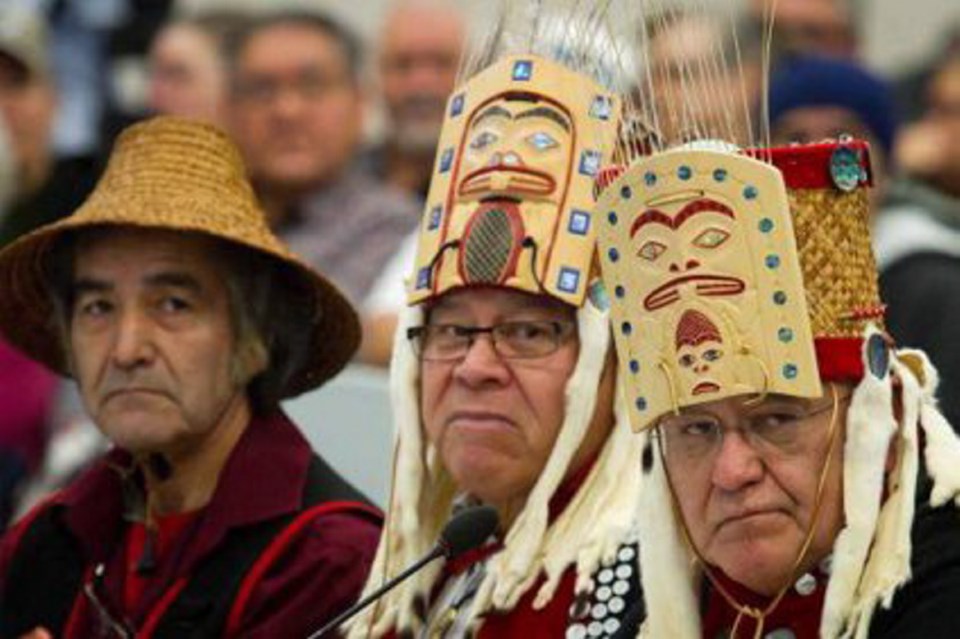 A clever argument about a detail in the federal-provincial agreement to co-operate when reviewing the Northern Gateway pipeline won the day in B.C. Supreme Court on Wednesday.
A clever argument about a detail in the federal-provincial agreement to co-operate when reviewing the Northern Gateway pipeline won the day in B.C. Supreme Court on Wednesday.
It resulted in a declaration by Justice Mary Marvyn Koenigsberg that B.C. abdicated its responsibility and breached the honour of the Crown by failing to consult with First Nations during the process of reviewing the planned crude-oil pipeline from Alberta to Kitimat.
The judgment doesn’t suspend the federal government’s approval of the pipeline, although the project looks to be on shaky ground regardless. But the process will have to be re-opened so B.C. can consult with one of the First Nations on the route, under direct orders from the judge.
It’s an embarrassing verdict for a government that prides itself on engaging with First Nations. It justifies some of the complaints over the past several years about how B.C. signed away too much authority when it agreed with the federal government to streamline environmental reviews by consolidating them. And it highlights yet again the importance of bringing First Nations on side when it comes to pipelines. That’s a complicated job that has only been accomplished in bits and pieces to date.
The “honour of the Crown” is a grand-sounding phrase that refers to the fundamental requirement on governments to act honourably on all aboriginal matters, in light of what has gone before. It has been in use for years and is uppermost in the minds of most governments when it comes to their dealings with First Nations. So a court finding — in 2016 — that B.C. breached that duty is a big deal.
“We don’t like to hear that language,” Justice Minister Suzanne Anton said. “We work closely with First Nations and will continue to do so.”
She said the verdict doesn’t overturn the federal approval of the project. It means B.C. will have to review the evidence collected and make its own decision. And B.C. can no longer defer to the National Energy Board when reviewing projects, she said.
She said B.C. is considering whether to appeal.
The argument centred on the equivalency agreement under which a joint review panel held hearings on behalf of both governments. Lawyers for the First Nations argued that the law allows for co-operation to avoid duplication, but the provisions don’t go so far as to allow for abdication of decision-making by the province.
So the director of the Environmental Approval Office was still required by law to approve the project. But the equivalency agreement negated that step.
Further, they argued that B.C. had a duty to consult First Nations before signing the co-operation agreement, because it provided for the province to avoid its obligation to make an EAO decision, which in turn meant avoiding the obligation to consult First Nations.
B.C. appeared as an intervener during the review process and opposed the project, saying numerous safety measures were needed.
That raises the prospect that if B.C. had not signed away the EAO’s duty to pronounce on the project, it would have had to consult First Nations and make accommodations. The judge said efficiency and co-operation are important, but “this does not provide sufficient justification for exercising discretion not clearly granted within the empowering legislation.”
B.C. had argued that the duty to consult can be fulfilled by either government, and the federal agencies did the job through the joint review panel.
But Justice Koenigsberg said the Environmental Assessment Act has obligations that can’t be signed away.
B.C. Liberals rewrote that act in 2002, stressing the need to balance environmental protection and economic development, and stimulate investment.
“I find that none of these objectives has any chance of being met, or even considered, if B.C. is giving up its decision-making authority before it has a chance to review a project,” the judge said. “I therefore find that it cannot be the intention of the legislators to allow the voice of B.C. to be removed in this process for an unknown number of projects, when the purpose behind the EAA is to promote economic interest ... and to protect its land and environment.”



